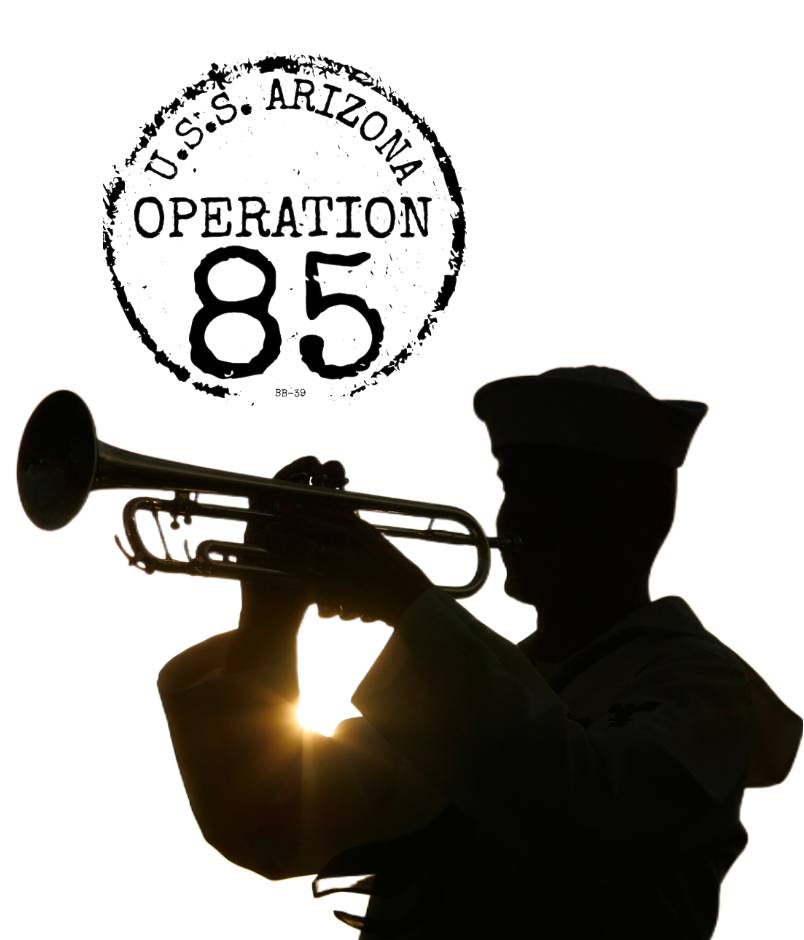MUS2c Frank Norman Floege,
- Home /
- MUS2c Frank Norman Floege,

- Rank:
- Branch:
- Home Town:
- Date Of Birth:
- Disposition:
- Family DNA on File:
MUS2c Frank Norman Floege
Frank Norman Floege was orphaned when he was 9. A brief story in the Detroit Free Press said the probate court in Cook County, Illinois was looking for his father, Frank H., because young Frank and his younger brother, Warren, were alone since their mother died. It was thought, the article said, that the father might be in Detroit.
It isn’t clear whether the father had died, too, or simply couldn’t be located, but the boys went in 1933 to live at the Illinois Soldiers’ & Sailors’ Children’s School in Normal north of Bloomington. They stayed until July 1936, when they moved 120 miles northeast to Harvey in the Chicago suburbs. There, Frank’s foster mother, Charlotte Hayes, described him as a grand boy who looked after his brother.
Frank graduated from Thornton Township High School in 1939. He played in the band and orchestra and participated in track and the Boys Club. He also played in a church orchestra and in a dance band, the Aristocats of Sheldon Heights. Mr. Floege worked in Harvey until he enlisted in the Navy in March 1941.
He was sent to the U.S. Navy School of Music, where he studied clarinet and saxophone. He was assigned to the U.S.S. Arizona and was a musician and petty officer second class when he was killed in the Japanese attack on Pearl Harbor, Dec. 7, 1941. Nicknamed “Flat-Foot Floege” by bandmates, he would have turned 20 in two weeks.
All 21 band members were killed when they rushed from the flag-raising on the fantail at the stern to their battle station in an ammunition hold under the 14-inch guns of turret 2. They likely died instantly after a Japanese bomb reached the black powder magazines on lower decks, exploded, and destroyed the front of the battleship.
Mr. Floege was born in Chicago on Dec. 20, 1921 and baptized at Our Redeemer Lutheran Church. His mother, Agnes Frisk Floege, was 34 and working as an attendant at Cook County Hospital when she died there in 1931 of a stomach problem and post-operative shock following a hysterectomy. His father served in the Navy in World War I.
A few months after Mr. Floege’s death at Pearl Harbor, the Band Parents Association at Thornton High organized a memorial service. Poems were recited and the band performed part of Dvorak’s “New World Symphony” and the Navy’s official song, “Anchors Aweigh.” A cornet trio played “Taps.”
One of his uncles, Ernest Floege, was awarded the Distinguished Service Cross by the United States and the Distinguished Service Order by Great Britain for his work as a secret agent in France during the war. Though also born in Chicago, he spent part of his childhood in France, served there as an interpreter during World War I, and married a French woman.
They were running a bus company when Germany invaded in 1940. His wife and children remained in France while he returned to the United States to enlist in the Army. He was assigned to the Office of Strategic Services — the forerunner of the Central intelligence Agency — and in 1943 parachuted into France to work with underground fighters. He was betrayed and narrowly escaped capture that Christmas, though more than 40 others in his organization were taken, including his in-laws, who were shot. One of his sons was sent to the Buchenwald concentration camp but survived. Ernest Floege made it to England and then, in March 1944, parachuted back into France near the German border. He became the leader of more than 3,000 resistance fighters.
His French business and home destroyed, he returned to the United States after the war and opened a French restaurant in Connecticut. He died in 1996 and is buried at Arlington National Cemetery.
Sources: the Detroit (Michigan) Free Press; the Harvey (Illinois) Tribune; the Chicago (Illinois) Tribune; Chicago South End Reporter; The Pantagraph of Bloomington, Illinois; the Bridgeport (Connecticut) Telegram; Evangelical Church of America records; Illinois death certificate; Thornton Township High School yearbook and web site; Navy muster roll; Census; Illinois birth record; “USS Arizona’s Last Band,” by Molly Kent; “At ‘Em Arizona,” the ship’s newspaper. High school photo of Frank Norman Floege. This profile was researched and written on behalf of the U.S.S. Arizona Mall Memorial at the University of Arizona.
